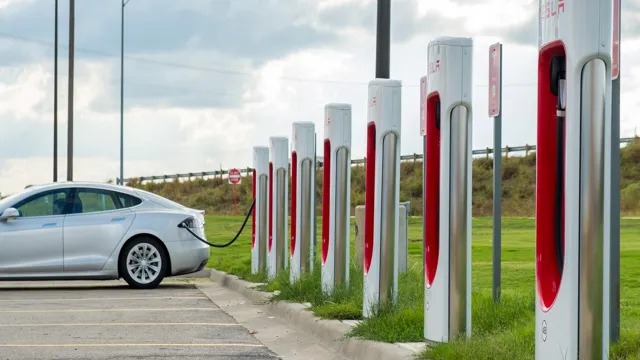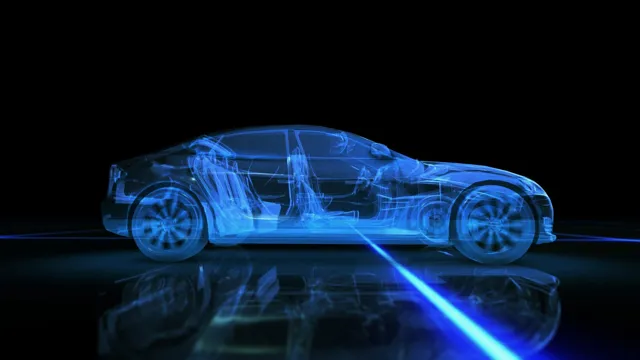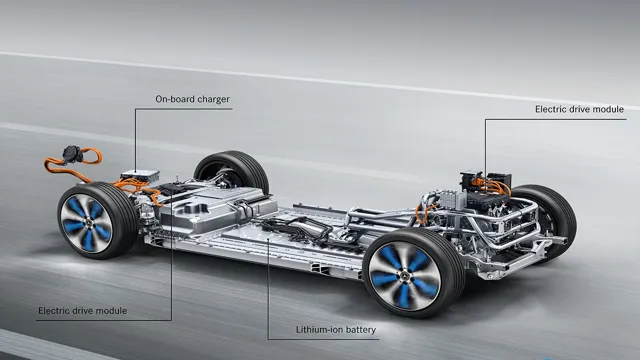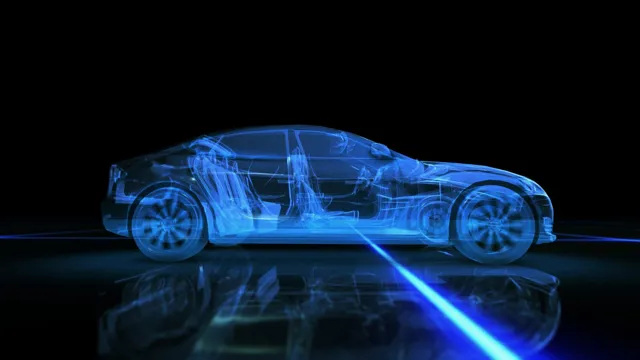Revolutionizing the Future: The Latest Electric Car Charging Stations Technology for a Greener Tomorrow
Do you ever find yourself worrying about your car’s fuel gauge dropping dangerously low while you’re out on the road? With electric cars becoming more popular and environmentally friendly, the concern now is whether or not there will be enough charging stations available to power them up. Thankfully, electric car charging stations technology is continually evolving and becoming more widespread, making it easier than ever to get a quick charge. In this blog post, we’ll dive into some of the latest advancements in electric car charging stations technology and learn how they’re making charging more accessible, convenient, and affordable for drivers everywhere.
Overview of Electric Car Charging Stations
Electric car charging stations technology has advanced significantly in recent years. These stations are designed to provide electric vehicles with the power they need to function without relying on traditional fossil fuels. There are various types of electric car charging stations technology available, ranging from slow-charging stations that can take several hours to fully charge a vehicle to fast-charging stations that can give a charge within minutes.
Level 1 chargers, which are mostly used for home charging, provide a 120-volt charge that will take between eight and 20 hours depending on the size of the battery. Level 2 chargers offer a charging speed of around 240 volts and can fully charge a vehicle from empty in four to eight hours. Meanwhile, Level 3 chargers are ideal for public charging points and malls, offering up to 480 volts of charging power, providing a full charge in under an hour.
These electric car charging stations technology use a range of technologies, including network connectivity and wireless charging capabilities to make it easier for drivers to charge their vehicles while on the go. As the demand for electric vehicles grows, so too will the technology used to recharge them, making charging more convenient and accessible for drivers.
Types of Charging Stations and their Capabilities
Electric car charging stations come in various types to meet different charging needs, from slow to fast chargers. Level 1 charging stations are the most basic, using the standard 120-volt wall outlet and providing a charging rate of around 4-5 miles of range per hour. Level 2 charging stations utilize a 240-volt power supply, delivering a charging rate of around 25-30 miles per hour.
These are ideal for home use and commercial settings, and they come in both home and public charging station variants. Level 3 charging stations, also known as DC fast chargers, deliver the fastest charging rates, but require specialized equipment and are often found in public charging stations. These ultra-fast chargers are capable of delivering up to 100 miles of range in just 20 minutes.
Ultimately, the type of charging station you need will depend on your electric car’s charging capabilities, your driving needs, and the availability of charging stations in your area.
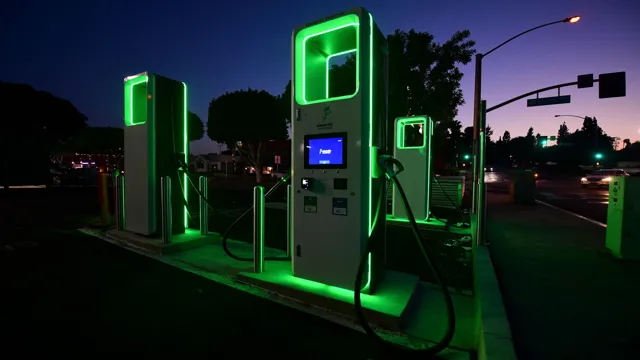
Charging Station Power Output and Charging Times
When it comes to electric car charging stations, it’s important to consider the power output and charging times. Charging stations come with varying power outputs, which determines how fast your vehicle will charge. The different levels of charging stations have different levels of power output, with Level 1 being the slowest and Level 3 being the fastest.
Level 1 charging stations are typically found in homes and offer the slowest charging rate, taking up to 24 hours to fully charge a vehicle. In contrast, Level 3 charging stations are the fastest, commonly found along major highways, and can take as little as 30 minutes to reach an 80% charge. However, not all electric vehicles are compatible with Level 3 charging stations, so it’s important to check your vehicle’s compatibility beforehand.
Overall, when deciding on an electric car charging station, it’s important to consider the power output and charging speed that meets your needs and fits the capabilities of your electric vehicle.
Advancements in Electric Car Charging Station Technology
Electric car charging stations technology has advanced significantly in recent years, making it easier and faster for drivers to charge their electric vehicles. One big advancement is the use of smart charging stations, which can communicate with the driver’s vehicle and adapt the charging speed and time to fit the car’s battery capacity and the driver’s route. This means that electric car owners can now plan their trips more efficiently, without worrying about running out of battery power on the road.
Another exciting development is the use of wireless charging technology, which allows drivers to simply park their car over a charging pad and charge their vehicle without any cords or cables. While these advancements make charging electric cars more convenient, they also have the potential to make electric vehicles more appealing to a broader range of drivers, ultimately contributing to a greener future.
Wireless Charging Stations
Electric car charging stations have come a long way, and the latest advancements in technology include wireless charging stations. These stations use electromagnetic fields to transfer energy from the charging pad to the car’s battery, eliminating the need for cables and plugs. This technology provides a more seamless and convenient way to charge electric vehicles, as drivers no longer need to physically connect their car to the charger.
Wireless charging stations also have the potential to reduce the clutter and hazards of dangling cables and plugs in public charging areas. Additionally, these stations are designed to be weather-resistant and can withstand harsh outdoor conditions. With more electric vehicles hitting the road each year, this technology is becoming increasingly important as a way to keep EVs charged and running smoothly.
Overall, wireless charging stations are just one example of the innovative technology that’s helping to make driving electric a more accessible and enjoyable experience for everyone.
Smart Charging Stations and Grid Integration
Electric car charging stations have come a long way in recent years with advancements in smart charging station technology. One such advancement is grid integration, where charging stations are designed to communicate with the power grid, allowing for more efficient and effective charging. This technology also allows for better load balancing by adjusting charging rates during peak hours and ensuring that electric car owners have access to charging stations when they need them the most.
With the rise of electric vehicles, it’s crucial that charging stations keep up with the demand and are capable of providing fast, reliable charging. Smart charging stations are currently being implemented in various locations, such as workplaces and public areas, providing electric vehicle owners with more options for charging their cars. The future of electric cars looks bright, with smart charging stations reducing range anxiety and making electric vehicles more accessible to the general public.
Battery Swapping Technology
As the adoption of electric cars continues to rise, so does the need for efficient charging technology. Battery swapping technology is one such advancement that is gaining traction in the industry. Simply put, it involves exchanging the depleted battery of an electric vehicle with a fully charged one at a charging station.
This eliminates the need for the vehicle to remain connected to the charger for extended periods, significantly reducing charging time. Additionally, battery swapping technology can potentially solve the issue of range anxiety for EV owners, as they can easily swap batteries on long-distance trips. While there are still some challenges associated with the implementation of this technology, such as the compatibility of batteries across different EV models, it has the potential to revolutionize electric vehicle charging and make EV ownership more accessible.
Impact of Electric Car Charging Station Technology
Electric car charging station technology has transformed the way we power our vehicles. With the growing market of electric cars, the demand for charging stations has increased significantly. The advancement in technology has brought about faster charging times, more reliable stations, and the integration of renewable energy sources.
This not only provides a more convenient and accessible means of transportation, but it also contributes to the reduction of carbon emissions. One of the benefits of this technology is the ability to remotely monitor and manage charging stations. This allows for easy access to data on usage, maintenance, and energy consumption.
As more businesses and governments invest in electric car charging station technology, it will not only accelerate the adoption of electric vehicles but also benefit the environment in the long run.
Environmental Benefits and Cost Savings
Installing electric car charging stations can have a significant positive impact on the environment and save costs in the long run. With the rise of electric vehicles, there is a need for more charging infrastructure, and with it comes a reduction in harmful emissions. By providing a clean and renewable source of energy to power vehicles, electric car charging stations help to reduce the amount of carbon emissions produced by traditional gasoline-powered vehicles.
Additionally, charging stations can help save money for drivers who choose to switch to electric vehicles. The cost of electricity is much lower than that of gasoline, and with more charging options available, drivers can avoid the high costs associated with gas stations. Overall, the installation of electric car charging station technology is a win-win for both the environment and drivers who want to save money while reducing their carbon footprint.
Increased Demand for Electric Cars and Energy Management
The increasing demand for electric cars is creating a surge in the need for electric vehicle charging stations. As more consumers switch to electric vehicles to reduce their carbon footprint and save on fuel costs, these charging stations are becoming integral to their daily lives. But with the increase in charging stations, managing energy demand has become a crucial aspect.
Thanks to modern technology, charging stations now feature energy management software, which makes it easier to monitor and manage energy usage. This technology helps to optimize energy usage, reducing overall energy consumption and making it more efficient. Just like a traffic light system, these management systems can direct the flow of energy, ensuring that vehicles are charged at the optimal time, without overloading the grid and causing outages.
This technology is a game-changer for EV owners, as it will make it easier to charge their vehicles and ensure that they’re doing their part in the fight against climate change.
Future of Electric Car Charging Station Technology
Electric car charging station technology is advancing rapidly, and we can expect to see even more incredible developments over the next few years. One exciting advancement is the use of wireless charging, which utilizes an inductive charging system to recharge the battery of an electric car. This means that drivers don’t have to worry about manually charging their vehicle, but rather simply parking in a designated wireless charging spot.
Another advancement is the use of solar-powered charging stations, which takes advantage of the abundant energy provided by the sun to recharge electric cars. This not only reduces energy costs, but also reduces our carbon footprint. In addition, smart charging stations are being developed that can communicate with electric cars and adjust charging rates based on energy demand and grid stability.
All in all, electric car charging stations technology is continuously evolving and improving, offering new and exciting possibilities for a greener, more sustainable future.
Conclusion
In conclusion, electric car charging stations technology is like a symphony of electrons and technology working together to create a harmonious rhythm of sustainable transportation. Just like a DJ mixes beats to create a perfect blend of music, electric car charging stations mix electricity and innovation to create a perfect blend of efficient and eco-friendly mobility. So next time you charge your electric vehicle, take a moment to appreciate the beauty and brilliance of this electrifying technology.
“
FAQs
What is an electric car charging station?
An electric car charging station is a facility that allows drivers to plug in their electric vehicles and charge them with electricity.
How does an electric car charging station work?
An electric car charging station works by providing a charger that is compatible with the vehicle’s battery, allowing it to charge up and store energy for later use.
Are there different types of electric car charging stations?
Yes, there are different types of electric car charging stations, ranging from Level 1 chargers that plug into a standard outlet, to Level 3 chargers that provide much faster charging speeds.
How will technology impact electric car charging stations in the future?
Technology will likely play a significant role in the future of electric car charging stations, as new innovations could allow for even faster and more efficient charging, as well as improved integration with renewable energy sources.
